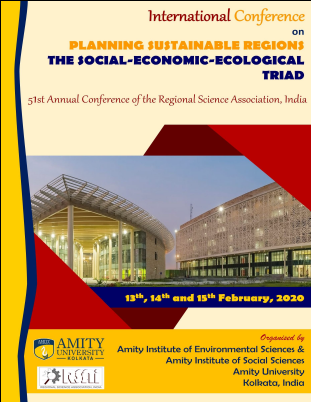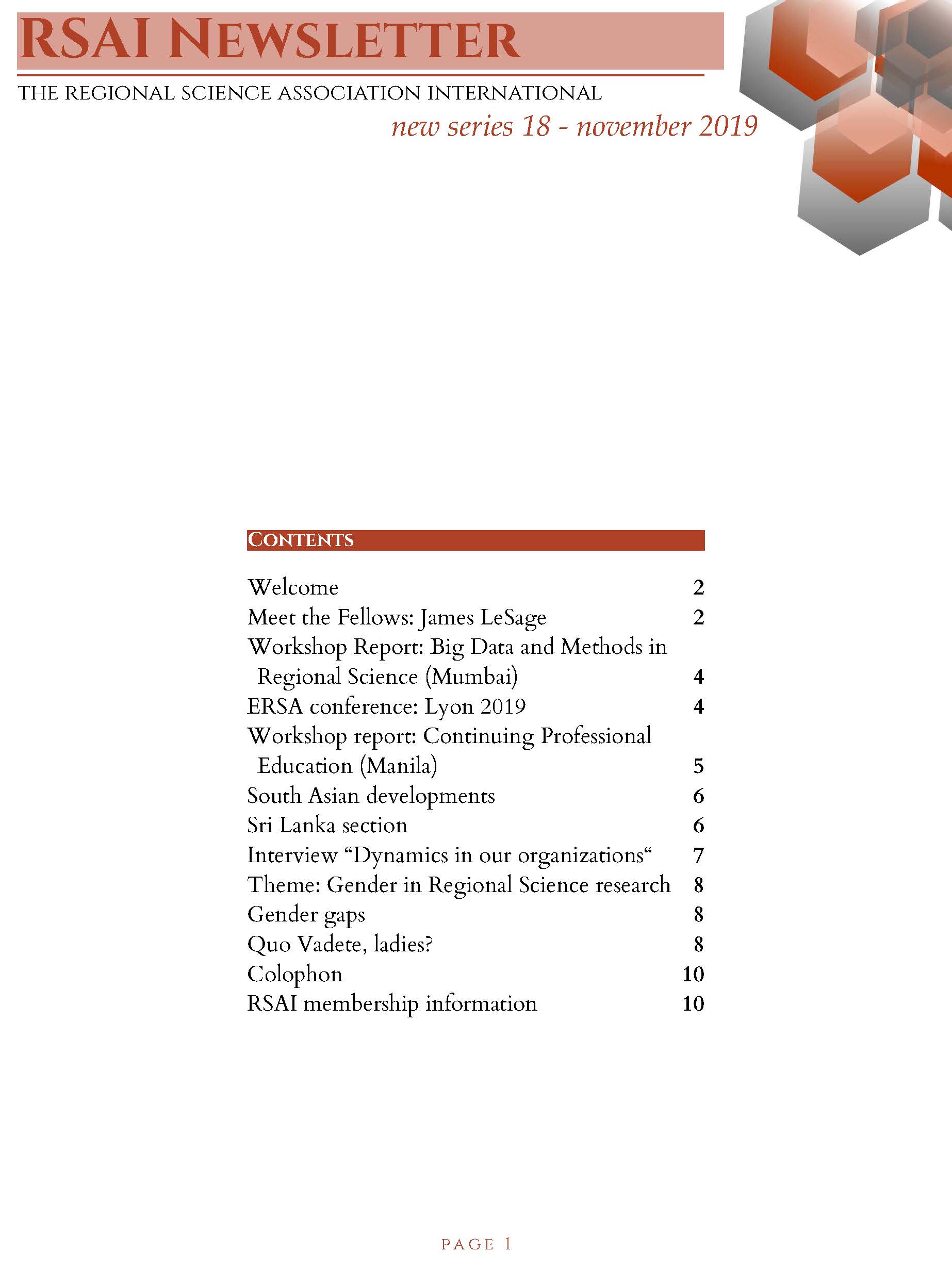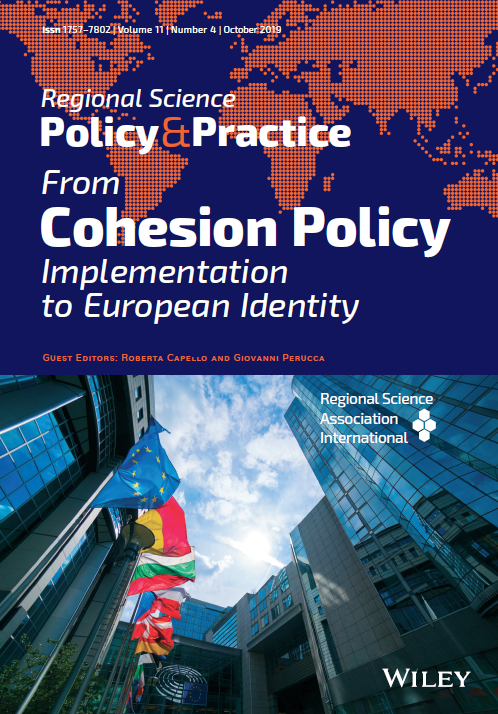51st RSAIndia Conference | 13-15 February, 2020, Kolkata, India
Dear Colleagues and Friends,
Greetings from Amity University, Kolkata and RSAi !!
We are pleased to announce the upcoming 51st annual conference of the Regional Science Association, India. The Amity Institute of Environmental Sciences and Amity Institute of Social Sciences of Amity University, Kolkata, India is going to organize an international conference on Planning Sustainable Regions: The Social-Economic-Ecological Triad during February 13-15, 2020. Kindly find the attached first circular of the conference. We are appreciating your active participation in the said event. Kindly ensure wider circulation of the news among your colleagues, friends, teachers, and students.
Looking forward to meet you at Kolkata. Feel free to contact us.
Thanking You,
With warm regards
--
Organising Committee,
International Conference on
Planning Sustainable Regions: The Social-Economic-Ecological Triad
Amity University, Kolkata
February 13-15, 2020
51st Annual Conference of the Regional Science Association, India
More information: http://www.rsai.org.in/
Next NECTAR workshops
Dear NECTAR friends,
Please find bellow two call for papers for the next NECTAR workshops:
* Cluster 2 and 7: "Social and Health Implications of Active Travel Policies”, Venice, Italy, 26-27 March 2020
* Cluster 5 and 6: "Regional Science and Tourism", Special Session for WRSA-PRSCO of RSAI 2020, Waikiki, Hawaii USA March 18-21, 2020
Best regards
--
Ana Condeço-Melhorado
NECTAR Secretary
RSPP Call for Papers | Special Issue on Night Light Indicators of Regional Economic Activity
Special issue RSPP
Night Light Indicators of Regional Economic Activity
The rising availability of satellite photos and maps of night light as well as of day images of terrain from satellite or from earth bring new opportunities for regional science. Novel techniques of image processing and image data analysis enable getting new indicators of regional and local development. It applies to agriculture, city sprawl, urbanisation, regional inequalities, as well as to light pollution that impacts inhabitants and nature. This novel source of data, quicker and more detailed than official statistics or survey questionnaires can supplement and expand the existing regional research, in terms of diagnosis and policy setting.
The goal of this special issue is to collect research papers on methodology and applications of night light analysis for regional science purposes. The special issue welcomes papers that show how these data can be used for regional studies and regional policy. We invite papers comparing the regional and local diagnosis with the use of image data and public statistics data and how the regional policy can benefit from this new source of information.
Keywords and topics for this Special Issue include, but are not limited to:
- Light night maps
- Satellite imagery
- Google Street View Photos / OpenStreetPhoto
- Regional diagnosis
- Measures of development
- Tracking of dynamics
- Local and regional policy
- Image data vs. public statistics data
- Image processing
- Image data analysis
Case studies on Central Europe and Baltic countries of EU will be more than welcome.
Papers should be submitted to the regular review process of the journal until 10th May 2020 (https://rsaiconnect.onlinelibrary.wiley.com/journal/17577802).
The coordinator of the Special Issue is:
Katarzyna KOPCZEWSKA (This email address is being protected from spambots. You need JavaScript enabled to view it.)
Workshop in Mumbai on Big Data and Methods in Regional Science
Workshop in Mumbai on Big Data and Methods in Regional Science
The five days’ workshop on methods in regional science took place in Mumbai from October 20 until October 25 organized by Prof. Sumana Bandyopadhyay from the Regional Science Association of India in collaboration with Prof. Abdul Shaban from the Tata Institute of Social Sciences.
The workshop involved more than forty researchers from different parts of India, Morocco, the Netherlands, the United States and Portugal. The event was excellent, enhancing teaching, learning and research experiences and diffusing a knowledge on methods in spatial analysis that are very effective in addressing issues in regional science and development.
Participants learn with each other how advanced methodological techniques apply to South Asia and Africa revealing new evidences and discussing how existing conceptual and applied models should be adapted to understand the dynamics of the slums in Mumbai; to perceive the behavior of criminals in prisons; and to grasp the challenges of urban transport and congestion. Adjusted frames of references to create more knowledge on the sustainability and resilience of urban and rural areas in their environmental, social, economic and institutional dimensions, to learn lessons of the circular economy in South Asia; and to find how poverty is evolving. Finally, to understand the technological innovations to improve urban management.
It was a kick off for a renewed regional science in South Asia, combining the science with policy with adequate methods and techniques.
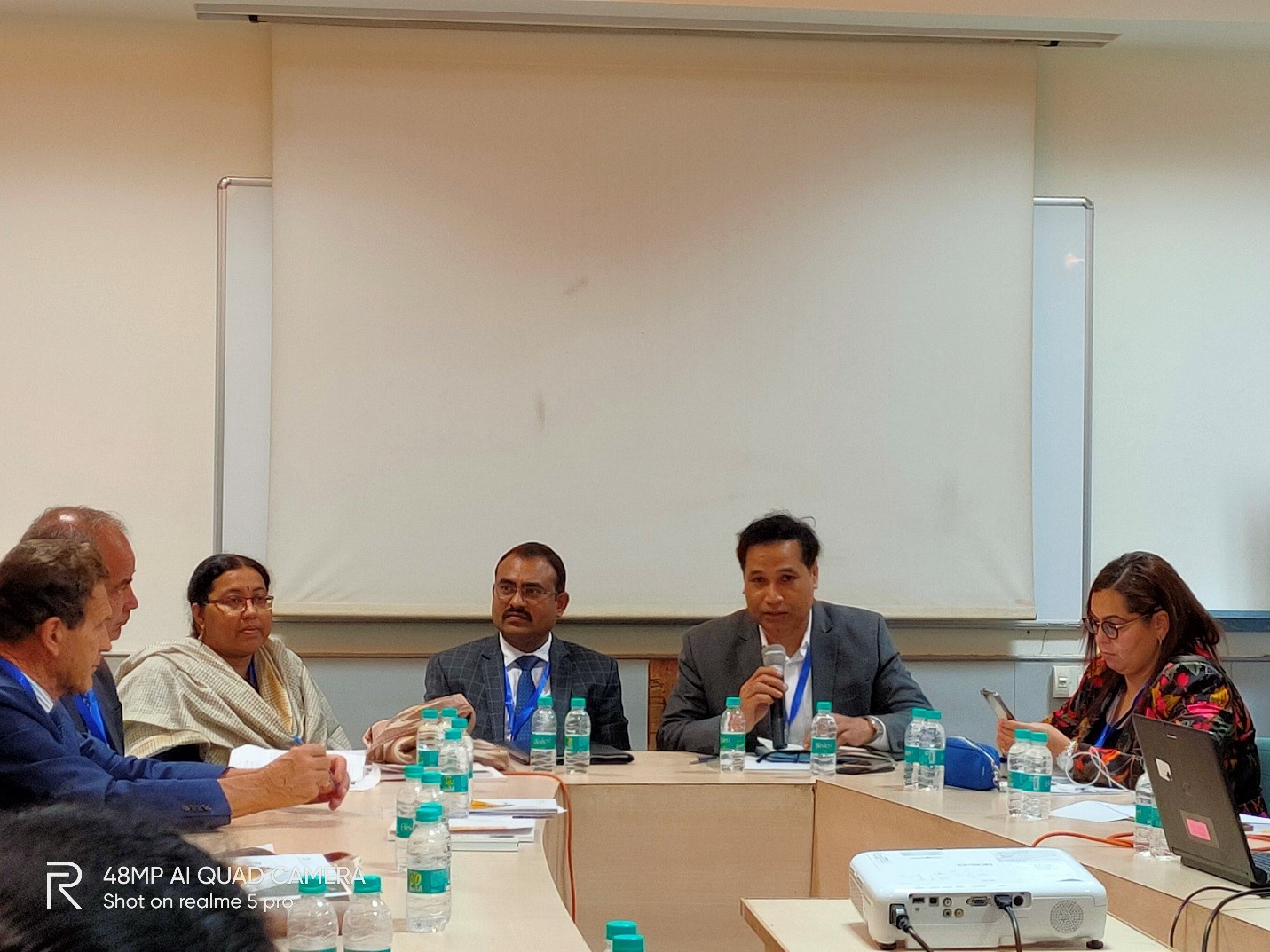
Figure 1. Introductions
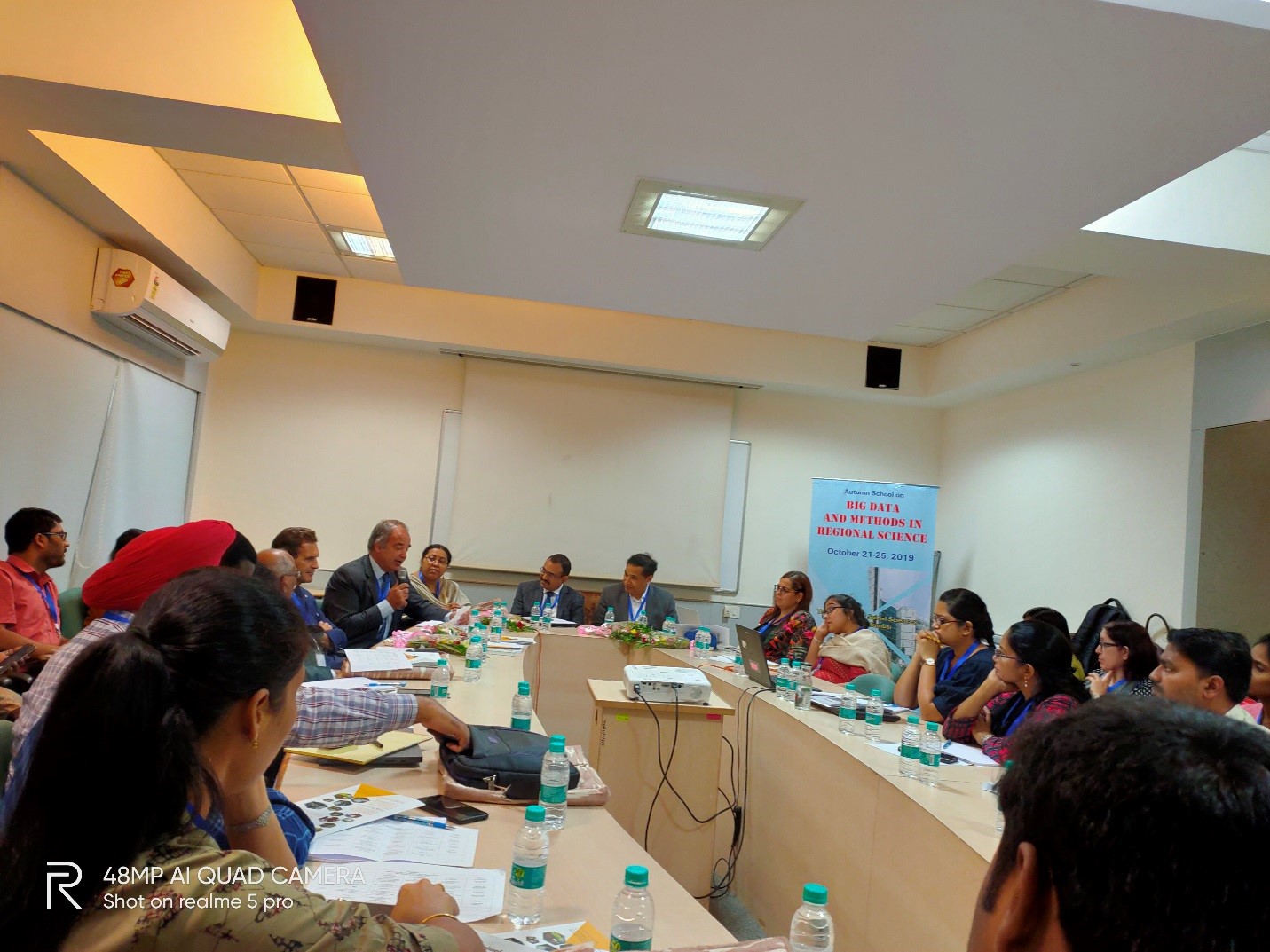
Figure 2. Opening address by Tomaz Dentinho
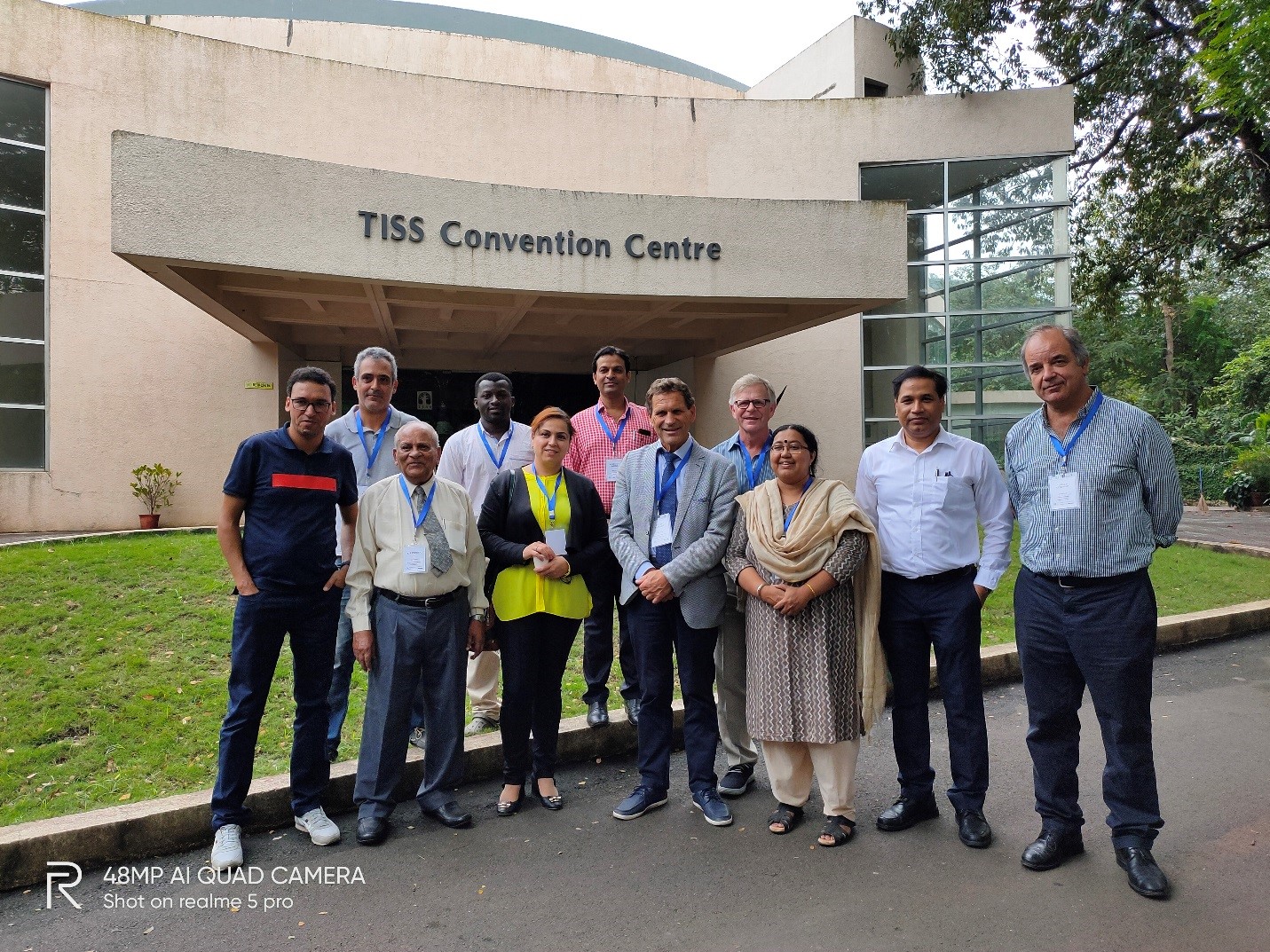
Figure 3. Speakers and organizers
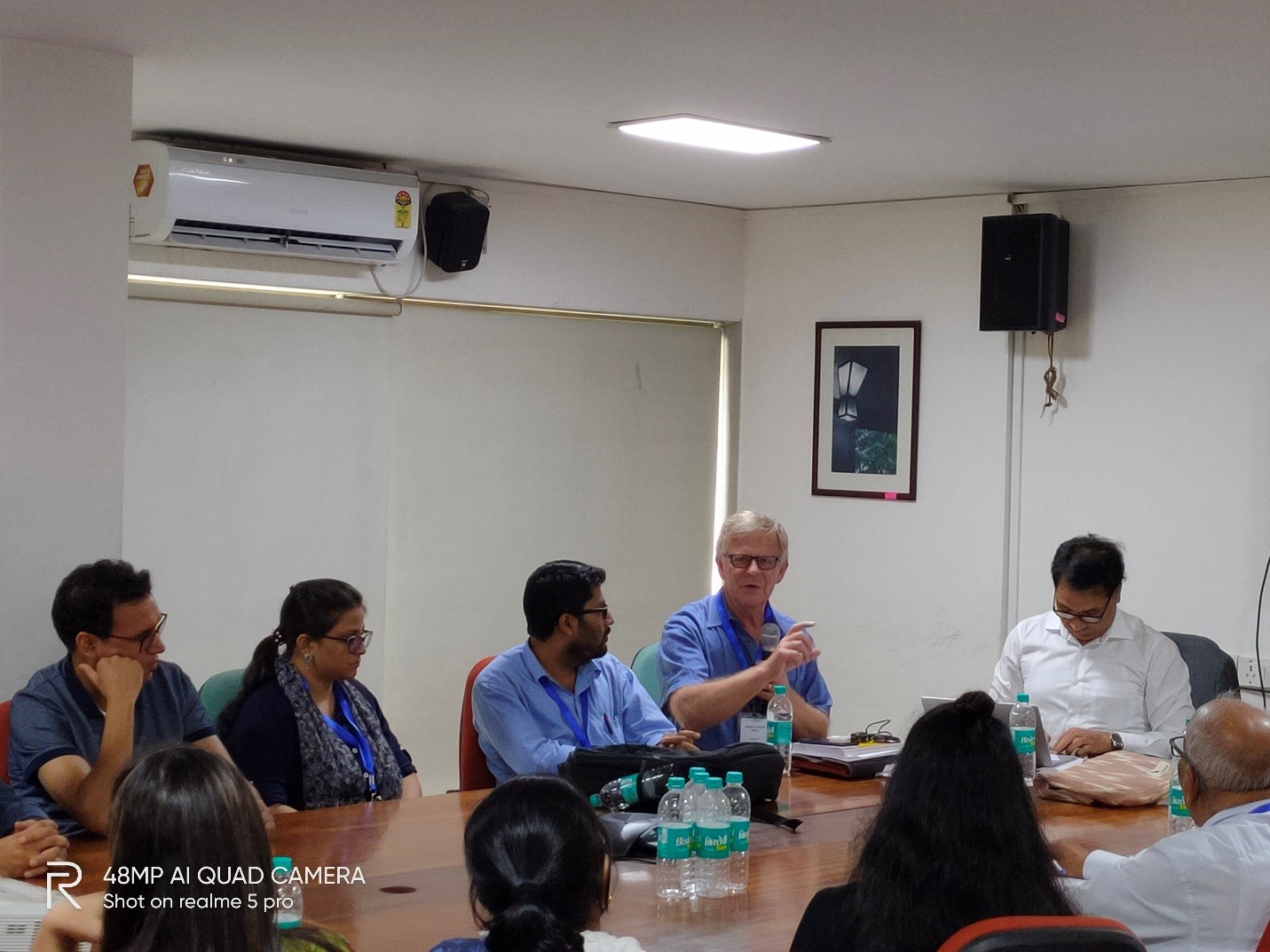
Figure 4. Closing session by Jean –Claude Thill
The Annals of Regional Science, Vol. 63, Issue 2 - New Issue Alert
|
|||||
|
|||||
|
Important news |
|||||
|
|||||
|
In this issue |
|||||
|
|||||
|
|||||
|
|||||
|
|||||
|
|||||
|
|||||
|
|||||
|
|||||
|
|||||
|
|||||
|
|||||
|
|||||
|
|||||
|
|||||
|
RSAI Newsletter November 2019 is now online!
The new RSAI Newsletter November 2019 can now be found under
https://www.regionalscience.org/images/PDF/Newsletter%202019%20November.pdf
RSAI News
Dear RSAI members,
The yearly NARSC congress, this year organized in Pittsburgh, PA, is quickly approaching and as another exciting Regional Science event is getting nearer I would like to take the chance to update you on three recent changes in the RSAI Council composition.
At the Lyon Council meeting a very important decision has been made. The Council elected Prof. Eduardo Haddad as President Elect of the RSAI. Eduardo will become Vice President as of January 2020, and will work along Prof. Mark Partridge, current RSAI President, for the benefit of the Association. Good luck Eduardo!
The Council also elected a New Treasurer. Our former Treasurer, Prof. Francisco Carballo-Cruz, decided to step down after years of excellent service. The new Treasurer is Prof. Serena Eréndira Serrano Oswald. Serena is current President of LARSA, and has a vast experience in dealing with regional science matters both at national and international level. Welcome on board Serena!
Lastly, right after the ERSA congress in Lyon the deadline for submitting applications for being elected Councillor-at-large expired. We received three excellent candidatures, and the turnover in the electronic ballot has been really impressive, witnessing the great interest of the members in the associational life. The majority of votes went to Daniela Luminita-Constantin, Romania, ERSA. Daniela is a historical and founding member of the Romanian section of the RSAI; she successfully organized a RSAI world congress in Timisoara, in 2012, and we are all excited to have her on board. Welcome Daniela!
I look forward to seeing many of you at some of the next RSAI events. In the meanwhile, I am sure you will join me in congratulating Eduardo, Serena, and Daniela for their forthcoming new endevors.
Andrea Caragliu
Executive Director, Regional Science Association International
Eduardo Haddad
Eduardo A. Haddad is Full Professor at the Department of Economics at the University of Sao Paulo (USP), Brazil, where he also directs the Regional and Urban Economics Lab (NEREUS). He is a Senior Fellow at the Policy Center for the New South, Rabat, Morocco.
Eduardo Haddad received his B.A. in Economics from the Federal University of Minas Gerais, Brazil, in 1993, and his Ph.D. in Economics from the University of Illinois at Urban-Champaign in 1997. In 1998 he held a post-doctoral position at the University of Oxford. He has served as the president of the Brazilian Regional Science Association (2008-2010), and as the first president of the Regional Science Association of the Americas (2008-2010). He was the Director of Research of the Brazilian think tank Institute of Economic Research Foundation (FIPE) from 2005 to 2013. Eduardo has spent the period January 2014 to June 2015 on sabbatical as a visitor at the Department of Economics (International Economics Section) at Princeton University, and at the Edward J. Bloustein School of Public Policy and Planning at Rutgers University. In 2017-2018, he was the Chairman of the Department of Economics at USP. Together with Professor Carlos Azzoni, he founded NEREUS in 2002.
Serena Eréndira Serrano Oswald
Serena is a full-time researcher in the "Culture, Politics and Diversity" Program of the Regional Center for Multidisciplinary Research (CRIM-UNAM).
She published more than thirty refereed publications, has organized 10 congresses at international level and 15 at national level; also, she has participated in 70 national and 45 international congresses.
Her research areas include gender, studies, identity, social representations, culture, motherhood, migration, politics, environment, peace and security, culture and regional development.
She has participated in 11 research projects and worked as a researcher, consultant, workshop worker, therapist and community facilitator, as well as in women's research projects for the pharmaceutical chemical industry. She is the founder of the NGOs Benguna Bee (Female Moon) and Tierra Joven. She is former President of the Mexican Association of Sciences for Regional Development (AMECIDER), and currently chairs the Latin American and Caribbean (LARSA) section of the RSAI.
Daniela Luminita-Constantin
Prof. Constantin is Full Professor of Regional Economics at the Academy of Economic Studies of Bucharest and acts as Director of the Research Centre for Macroeconomic and Regional Forecasting of this university. In 2001, Prof. Constantin has formed together with her colleagues mainly from the Academy of Economic Studies of Bucharest the Romanian Regional Science Association (RRSA). Since 2002 RRSA became member of the European Regional Science Association. In 2012 she coordinated the organization of the 9th World Congress of the RSAI in Timisoara. Daniela will take on her position as of Jan. 1, 2020.
New book by Paulo Haddad
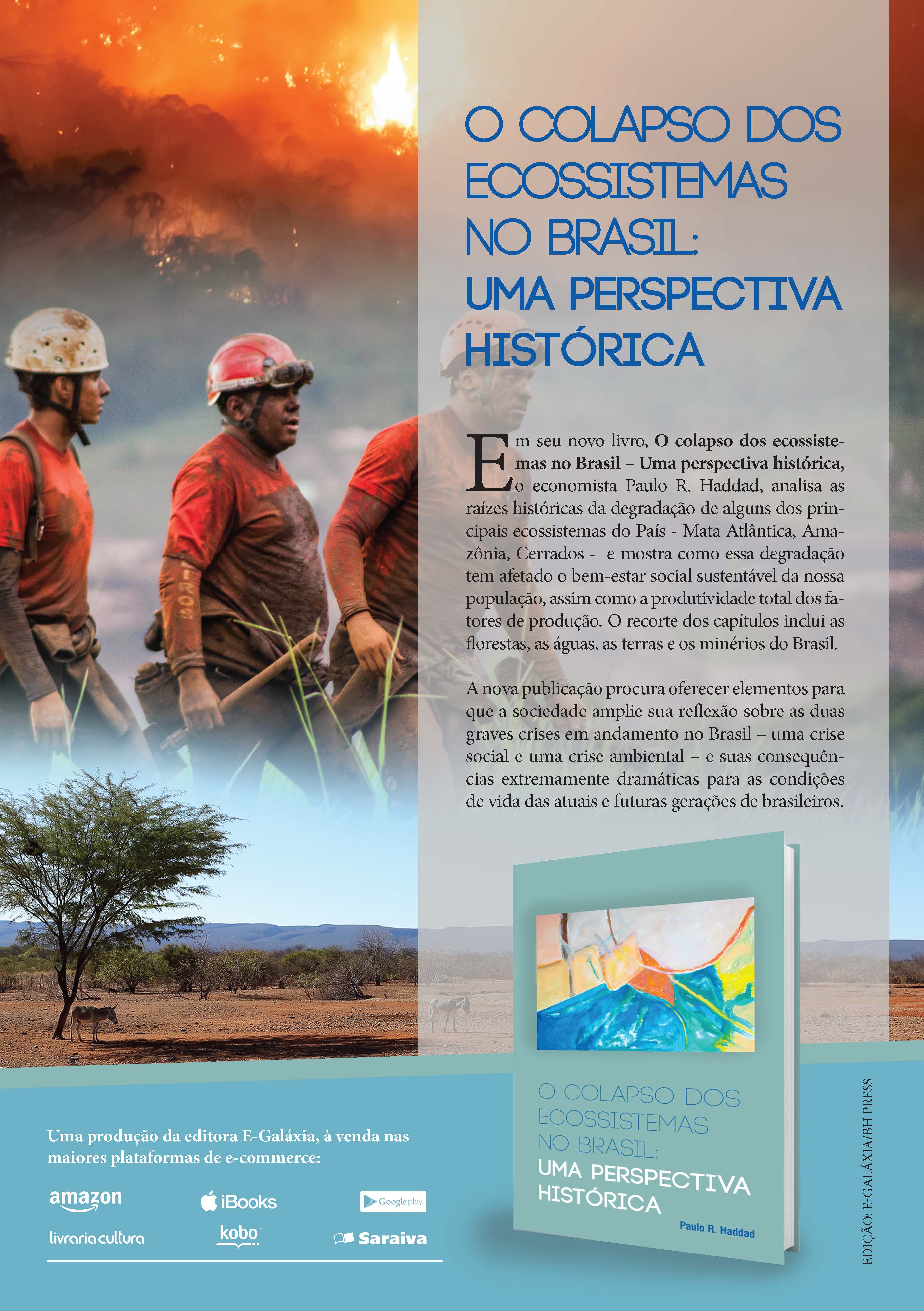
The latest issue of Regional Science Policy & Practice are available! Volume 11, Issue 4, Special Issue:From Cohesion Policy Implementation to European Identity, Pages 629-755, October 2019
|
Regional Science Policy & Practice Pages: 629-755 October 2019 |
ISSUE INFORMATION
Pages: 629-630 | First Published: 29 October 2019
INTRODUCTION
From Cohesion Policy Implementation to European Identity
Roberta Capello, Giovanni Perucca
Pages: 631-636 | First Published: 29 October 2019
ORIGINAL ARTICLES
Cohesion Policy and European identity building: Trust as a mediating element
Roberta Capello, Giovanni Perucca
Pages: 637-653 | First Published: 31 July 2019
Mapping citizens' identification with the EU
Cristina Brasili, Pinuccia Calia, Irene Monasterolo
Pages: 655-672 | First Published: 31 July 2019
European identity and citizens' support for the EU: Testing the utilitarian approach
Valentina Aiello, Pierre Maurice Reverberi, Cristina Brasili
Pages: 673-693 | First Published: 10 September 2019
![]() Open Access
Open Access
EU Cohesion Policy can't buy me love? Exploring the regional determinants of EU image
Marcin Dąbrowski, Dominic Stead, Bardia Mashhoodi
Pages: 695-711 | First Published: 30 August 2019
Economic crisis, Cohesion Policy and the eroding image of the European Union at the regional level
Maciej Smętkowski, Marcin Dąbrowski
Pages: 713-732 | First Published: 30 August 2019
![]() Open Access
Open Access
Citizens' perception of the Cohesion Policy and support for the European Union
Enrique López‐Bazo, Vicente Royuela
Pages: 733-749 | First Published: 18 July 2019
BOOK REVIEWS
The human and economic implications of twenty‐first century immigration policy ‐ By S. Pozo (Ed.)
Bruce Newbold
Pages: 751-752 | First Published: 27 February 2019
Amitrajeet A. Batabyal
Pages: 752-753 | First Published: 07 March 2019
Kyle Farrell
Pages: 754-755 | First Published: 12 April 2019
About Us
The Regional Science Association International (RSAI), founded in 1954, is an international community of scholars interested in the regional impacts of national or global processes of economic and social change.

